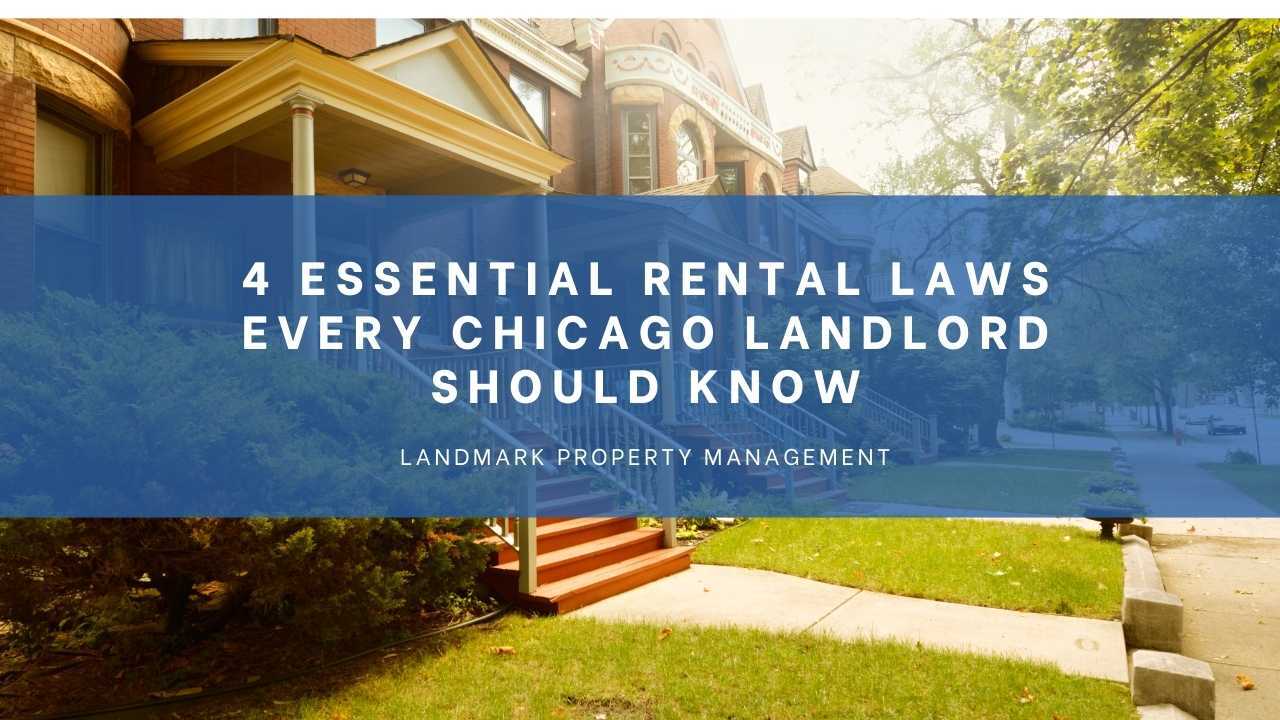Owning rental property in Chicago or nearby suburbs like Naperville, Oak Park, and Tinley Park can be a profitable investment. But one wrong move with local landlord-tenant laws can quickly turn that investment into a liability. Legal mistakes often lead to fines, lawsuits, or long vacancies that eat away at rental income.
At Landmark Property Management, we’ve seen firsthand how even experienced landlords can run into trouble. That’s why understanding Chicago’s rental laws is one of the most important property management tips we can share. Below, we’ll walk through four critical laws that every landlord in Cook County and Will County should know.
1. Eviction Laws in Illinois and Cook County
Evictions in Illinois require very specific steps. For example, landlords must issue the proper notice such as a 5-day notice for non-payment of rent and then follow court procedures carefully.
In Cook County, the Residential Landlord-Tenant Ordinance (RLTO) adds requirements like longer notice periods and “pay-to-stay” options that allow tenants to avoid eviction by paying overdue rent. Missing even one step can cause a costly delay. Many landlords rely on professional guidance to stay aligned with local rules, since navigating Chicago’s eviction process is often more complex than state law alone.

2. Security Deposit Laws in Illinois and Chicago
Security deposits are one of the biggest legal traps for landlords. In Illinois, landlords must provide a written receipt, an itemized list of deductions within 30 days, and return the deposit within 45 days.
Chicago takes it further. If you hold a deposit longer than six months, you must pay interest. Mess up any of these steps even accidentally and you could owe the tenant twice the deposit plus attorney fees.
Because of these risks, many landlords now opt for non-refundable move-in fees instead of deposits. Understanding what can be charged to a tenant’s security deposit helps clarify where costly mistakes most often occur.
3. Fair Housing Laws
Federal Fair Housing laws prohibit discrimination based on race, religion, sex, national origin, disability, or family status. Cook County expands those protections, covering sexual orientation, gender identity, and even source of income, including tenants using housing vouchers.
That means landlords cannot refuse applicants simply because they use Section 8 vouchers. Even small wording choices in rental listings can lead to a complaint. Clear policies and consistent procedures are essential, and the broader legal aspects of property management play an important role in helping landlords stay compliant.

4. Rent Control and Lease Rules in Chicago
Illinois currently bans rent control, but Chicago landlords still face strict lease regulations. Under the city’s Fair Notice Ordinance, landlords must give:
30 days’ notice if the tenant has lived there more than 6 months
60 days’ notice if between 6 months and 3 years
120 days’ notice if more than 3 years
Late fees are capped at $10 for the first $1,000 of rent, plus 5% of any amount over that. And don’t forget mandatory lease disclosures about bed bugs, radon, and tenant rights. Lease requirements also change with market dynamics, as seen in the guide to rent price forecasts in Chicago, which highlights how regulation and demand influence long-term investment strategies.
Why Compliance Matters
Even small mistakes like refunding a deposit late can snowball into expensive consequences. Laws also change frequently, so landlords should stay updated or consider working with a professional management company.
At Landmark Property Management, we help landlords in Cook County and Will County stay compliant and profitable. From leases and evictions to fair housing and security deposit laws, we’ve got your back.







.png)


